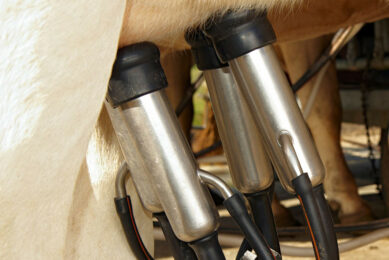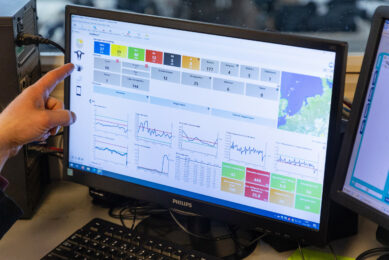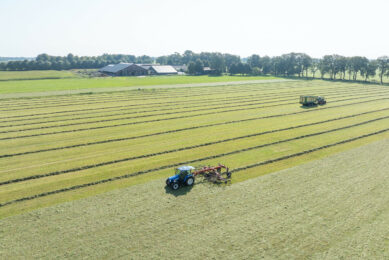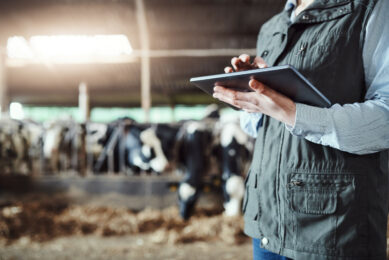Futuristic concepts incorporating circular dairy farming
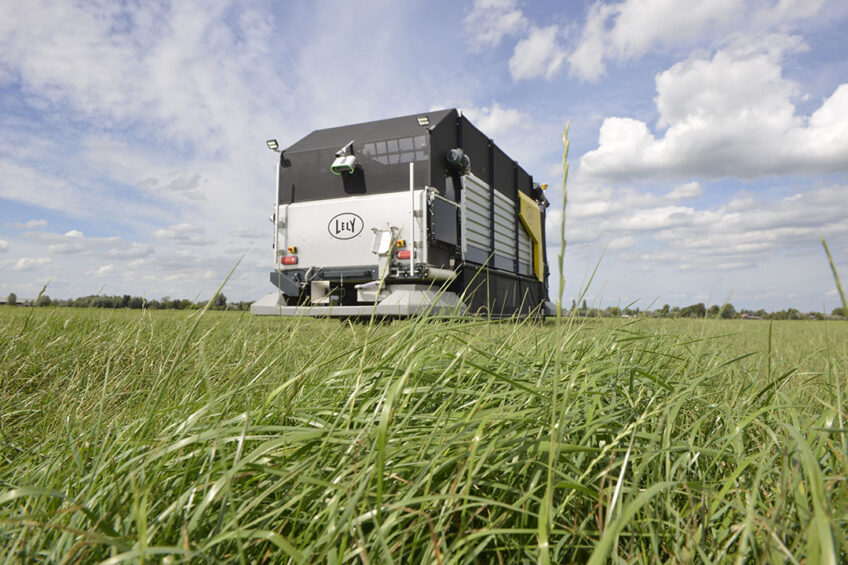
Lely has just unveiled some new concepts to further automate production systems. Dairy farmers are getting a taste of the future.
At the Lely Future Farm Days 2020 event organised on Tuesday 6 October 2020, Dutch agricultural machine manufacturer Lely has taken another leap into the future and has introduced a new system of harvesting and feeding fresh grass to cows. Plus, it has also launched a new manure system that utilises more nutrients from the slurry and a new decision-support platform.
Lely CEO André van Troost says the farms of the future will be completely robotised, operational 24/7 and are based on the principle of allowing cows to move freely, so they can behave naturally with excellent welfare guaranteed.
He said: “We live in a rapidly changing world where the population continues to grow.
We desperately need farmers, because we expect the demand for food to increase by 70% by 2050.
“The impact of farming on the environment is also coming under increasing scrutiny, and regulations are becoming stricter. Dairy farmers therefore have to change the way they work to guarantee their future.”
All these elements are part of the Lely vision of the farm of the future, incorporating circularity in dairy farming where valuable nutrients are reused, waste is limited, and the emissions of harmful substances are reduced to a minimum.
Also read: Interview with André van Troost, CEO Lely
Lely Exos harvests grass by itself
The Lely Exos concept is the first fully autonomous system for harvesting and feeding fresh grass in the barn during the growing season and in conjunction with grazing, if need be.
The main goal is to harvest fresh grass in fields up to 1km away from the farm to increase the nutritional value of the roughage in the cows’ diet more efficiently, therefore producing more milk from grass.

The Exos is an electric powered machine using GPS to travel to the fields to autonomously mow, load and dispense grass to the cows in the barns. Exos can harvest and provide fresh grass to the cows 24 hours a day saving time and labour for the farmer.
Lely says this completely new approach to grass was an opportunity to redesign mowing and harvesting technology. The low weight and soil-friendly technology of this machine means it can mow from early spring to late autumn.
The Exos can operate in tandem with the Lely Vector automatic feeding system and constantly monitors the percentage of fresh grass in the ration. The system also collects data in the field, so that the farmer can respond immediately to the grass supply at any given moment.
The first prototypes of the Exos are already operational on test farms, where as much information as possible about the autonomous harvesting of fresh grass will be generated by extensive daily testing.
Lely is also looking at using the system to dose a specific amount of liquid fertiliser adapted to each location in conjunction with its new Sphere system.
Lely Sphere utilises slurry nutrients
Lely also presented a new barn system called Lely Sphere that separates manure and urine, converts nitrogen emissions, and creates 3 valuable types of fertiliser.
Korstiaan Blokland, Lely head of innovations, said: “Lely Sphere is designed to help dairy farmers exploit the valuable nutrients in manure to the maximum, and thus promote crop growth.
This practical solution is easy to deploy, and part of the transition to more sustainable and even more circular dairy farming.”
By making better use of the minerals in manure and converting losses through emission into value, the mineral loop is better closed and less chemical fertiliser needs to be purchased.
In the Sphere system manure and urine are separated from each other with the urine flowing through separation strips to the pit, while the manure remains above.
This is the first step to limiting emissions, because separating at the source results in less ammonia in the barn. The Lely Sphere N-Capture creates an under pressure in the pit, and extracts manure gases that are created under and just above the barn floor.
This also includes the remainder of the ammonia formed on the walking surface and the pit. The filter in the N-Capture captures the ammonia and uses acid to convert it into circular fertiliser.

The Discovery Collector barn cleaning robot regularly sucks up the solid manure, keeps the barn floor clean, and transports this solid fraction to a chosen disposal site.
The 3 types of fertiliser produced are: mineral nitrogen of mineral fertiliser quality in the discharge water produced by the N-Capture; phosphate and organic nitrogen in the solid fraction and potassium in the pit.
Official measurements at test farms have shown that total ammonia emissions from barns are reduced by approximately 70%. As an emission-limiting system, Lely Sphere also distinguishes itself by reusing nitrogen as a substitute for chemical fertiliser. Practical tests have shown that 10 to 20kg nitrogen per cow per year can be harvested.
The Lely Sphere has been operational since 2017 and is now running on 4 test farms. Even though the system has international potential, Lely says it will focus on the Dutch market first while conducting ongoing trials to perfect it.
At the moment, approximately 60% of the official measurements necessary for recognition under the Netherlands Livestock Farming Ammonia Regulation (RAV), have been completed.
New farm management application Lely Horizon
Lely Horizon is designed to connect data from all relevant equipment and suppliers, even other brands, on the farm in 1 management system. It is a real decision-support platform, which analyses data, offers insights and gives proactive advice to make the farmer’s life easier, the herd healthier and the farm more profitable.

The new application replaces the current Lely T4C management system.
Freddie Ruijs, Lely senior product manager, said: “Horizon connects equipment and suppliers on the farm, using smart algorithms and the power of the cloud. Data is processed into actionable information that is always accessible on any device in a user-friendly way.
The application provides farmers with the tools to work more efficiently and offers them more control, to help them achieve their goals,” he said.
The application was created with the help of more than 100 test farmers in 7 countries over a 24-month period. It involved the collaboration of more than 75 engineers, designers, farm management advisors, veterinarians and AI specialists, in order to make the concept smarter and more user friendly.
As Horizon is open to all partner equipment, this means that entering the same data in 2 separate systems will become a thing of the past. Another advantage is that analysing individual data in different applications and reports is no longer necessary, which will save time on a daily basis.
Currently, connections with farming applications such as Dairy Comp, Uniform-Agri, CRV and Herde already enable farmers to synchronise information about calving and inseminations between applications. Lely said its ambition is to connect more partners over time.
In order to ensure full support in the migration to Lely Horizon, existing Lely T4C customers will be personally informed by their Lely Centre before the end of 2020.
For more info: Lely



